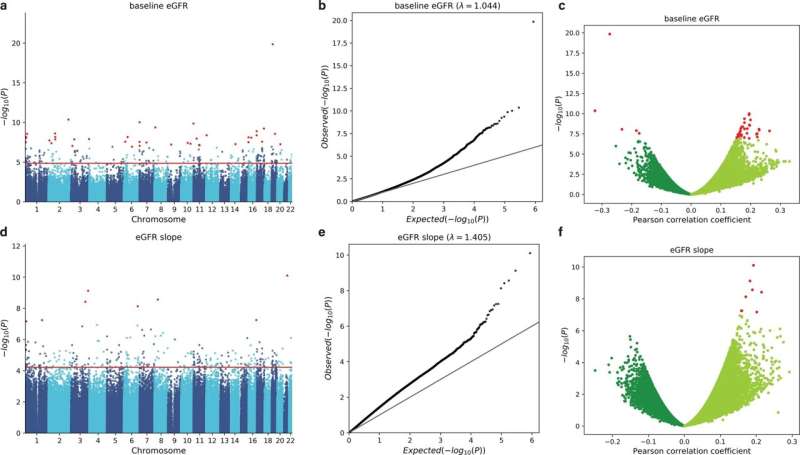This article has been reviewed according to Science X's editorial process and policies. Editors have highlighted the following attributes while ensuring the content's credibility:
fact-checked
peer-reviewed publication
trusted source
proofread
New algorithm can predict diabetic kidney disease

Researchers from Sanford Burnham Prebys and the Chinese University of Hong Kong have developed a computational approach to predict whether a person with type 2 diabetes will develop kidney disease, a frequent and dangerous complication of diabetes. Their results, published in Nature Communications, could help doctors prevent or better manage kidney disease in people with type 2 diabetes.
"This study provides a glimpse into the powerful future of predictive diagnostics," says co-senior author Kevin Yip, Ph.D., a professor and director of Bioinformatics at Sanford Burnham Prebys. "Our team has demonstrated that by combining clinical data with cutting-edge technology, it's possible to develop computational models to help clinicians optimize the treatment of type 2 diabetes to prevent kidney disease."
Diabetes is the leading cause of kidney failure worldwide. In the United States, 44% of cases of end-stage kidney disease and dialysis are due to diabetes. In Asia, this number is 50%.
"There has been significant progress developing treatments for kidney disease in people with diabetes," says co-senior author Ronald Ma, MB BChir, FRCP, a professor in the Department of Medicine and Therapeutics at the Chinese University of Hong Kong. "However, it can be difficult to assess an individual patient's risk for developing kidney disease based on clinical factors alone, so determining who is at greatest risk of developing diabetic kidney disease is an important clinical need."
The new algorithm depends on measurements of a process called DNA methylation, which occurs when subtle changes accumulate in our DNA. DNA methylation can encode important information about which genes are being turned on and off, and it can be easily measured through blood tests.
"Our computational model can use methylation markers from a blood sample to predict both current kidney function and how the kidneys will function years in the future, which means it could be easily implemented alongside current methods for evaluating a patient's risk for kidney disease," says Yip.
The researchers developed their model using detailed data from more than 1,200 patients with type 2 diabetes in the Hong Kong Diabetes Register. They also tested their model on a separate group of 326 Native Americans with type 2 diabetes, which helped ensure that their approach could predict kidney disease in different populations.
"This study highlights the unique strength of the Hong Kong Diabetes Register and its huge potential to fuel further discoveries to improve our understanding of diabetes and its complications," says study co-author Juliana Chan, M.D., FRCP, a professor in the Department of Medicine and Therapeutics at the Chinese University of Hong Kong, who established the Hong Kong Diabetes Register more than two decades ago.
"The Hong Kong Diabetes Register is a scientific treasure," adds first author Kelly Yichen Li, Ph.D., a postdoctoral scientist at Sanford Burnham Prebys. "They follow up with patients for many years, which gives us a full picture of how human health can change over decades in people with diabetes."
The researchers are currently working to further refine their model. They are also expanding the application of their approach to look at other questions about human health and disease—such as determining why some people with cancer don't respond well to certain treatments.
"The science is still evolving, but we are working on incorporating additional information into our model to further empower precision medicine in diabetes," adds Ma.
More information: DNA methylation markers for kidney function and progression of diabetic kidney disease, Nature Communications (2023). DOI: 10.1038/s41467-023-37837-7





















